US assassination of Gen. Soleimani, PMU deputy chief 'brazen attack' on Iraq’s sovereignty: PM Sudani
Iraqi Prime Minister Mohammed Shia' al-Sudani has paid tribute to top Iranian anti-terror commander General Qassem Soleimani and his Iraqi trenchmate Abu Mahdi al-Muhandis, who were killed in a US drone strike near Baghdad airport three years ago, stating that their targeted killings were actually “a brazen attack” on Iraq's sovereignty.
“The crime of assassinating the ‘Commanders of Victory’ and their companions represented a flagrant violation of Iraq’s territorial integrity and national sovereignty. The targeted killings of the commanders, who had a leading role in elimination of the scourge of terrorism, is an utter disrespect to bilateral agreements [signed between Baghdad and Washington],” Sudani said at a Thursday ceremony in the capital Baghdad in commemoration of the two legendary commanders.
“We woke up on January 3, 2020 to hear the terrible news about assassination of Abu Mahdi al-Muhandis, the second-in-command of the Popular Mobilization Units (PMU), and Gen. Qassem Soleimani, who was on an official visit to Iraq,” he added.
The Iraqi prime minister went on to denounce the administration of former US president Donald Trump over its brazen attack on Iraq’s territorial integrity and sovereignty.
“The fight against dark terrorism requires power and resilience, and this came through the national spirit of all Iraqis and the fatwa (religious edict) issued by Iraq’s leading religious authority [Grand Ayatollah Ali al-Sistani],” Sudani pointed out.
He highlighted that his government is working to build a solid foundation for Iraqi sovereignty, is independent in decision-making, forges relations on the basis of common interests, safeguards the sovereignty of the country’s soil and territorial waters, and spares no effort to repel any act of aggression against the Iraqi nation and its guests.
Moreover, Chairman of the Iraqi Supreme Judicial Council Faiq Zidane decried the assassination of Muhandis and Gen. Soleimani as “a vile and cowardly act.”
He underscored that the Iraqi Judiciary bears the responsibility to shed light on all circumstances surrounding the US assassination, calling on the country’s security institutions to provide judicial authorities with all necessary documents and findings in this regard.
‘Iraq judicial chief highlights arrest warrant for Trump’
Zidan went on to note that Iraq’s Supreme Judicial Council has issued an arrest warrant for former US president Donald Trump over the assassination of General Soleimani and the PMU deputy chief.
The council's president said that Trump has confessed to his “crime” in relation to the assassination of the “Leaders of Victory.”
He called upon all Iraqi officials involved in investigations over the targeted killings to try their utmost, and identify all related architects, organizers and culprits.
Chairman of Hashd al-Sha’abi Falih al-Fayyadh also stated that Muhandis devoted his life for the protection of Iraq, and the ‘Commanders of Victory’ fought enemies when the country was behest with its worst problems.
General Soleimani, commander of the Quds Force of Iran’s Islamic Revolution Guards Corps (IRGC), Muhandis, and their companions were assassinated in a US drone strike authorized by Trump near Baghdad International Airport on January 3, 2020.
Two days after the attack, Iraqi lawmakers approved a bill that required the government to end the presence of all foreign military forces led by the US in the country.
Both commanders were highly revered across the Middle East because of their key role in fighting the Daesh Takfiri terrorist group in the region, particularly in Iraq and Syria.
On January 8, 2020, the IRGC targeted the US-run Ain al-Asad base in Iraq’s western province of Anbar with a wave of missile attacks in retaliation for the assassination of Gen. Soleimani.
According to the Pentagon, more than 100 American forces suffered “traumatic brain injuries” during the counterstrike on the base. The IRGC, however, says Washington uses the term to mask the number of the Americans who perished during the retaliation.
Iran has described the missile attack on Ain al-Assad as a “first slap”.
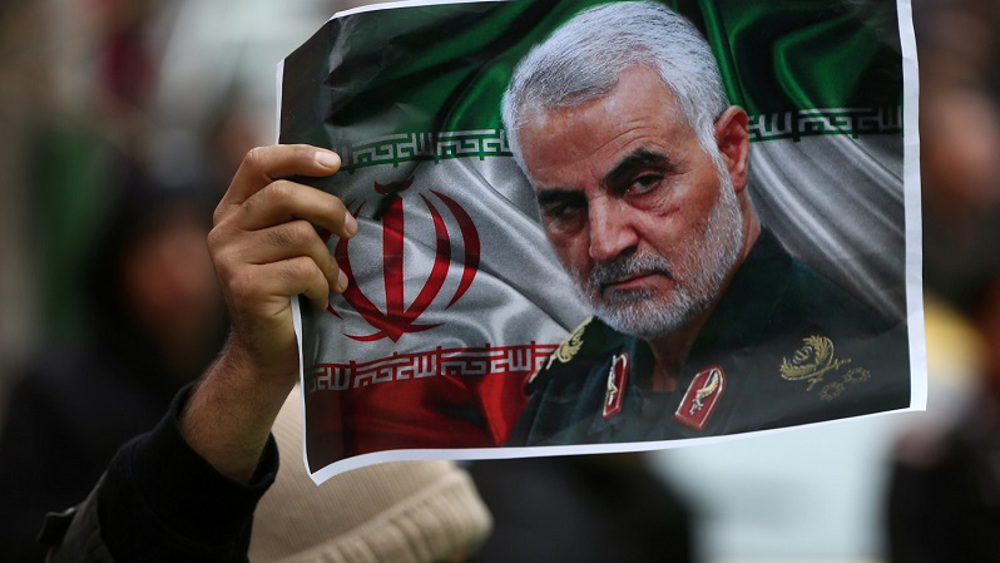
The legacy of Hajj Qassem
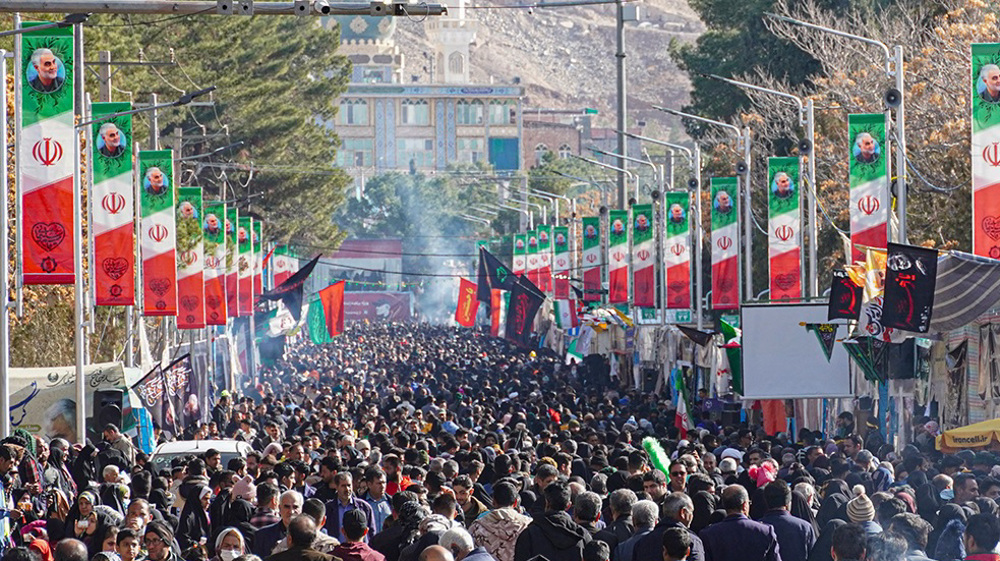
Iranians mark Gen. Soleimani’s 4th martyrdom anniversary in Kerman
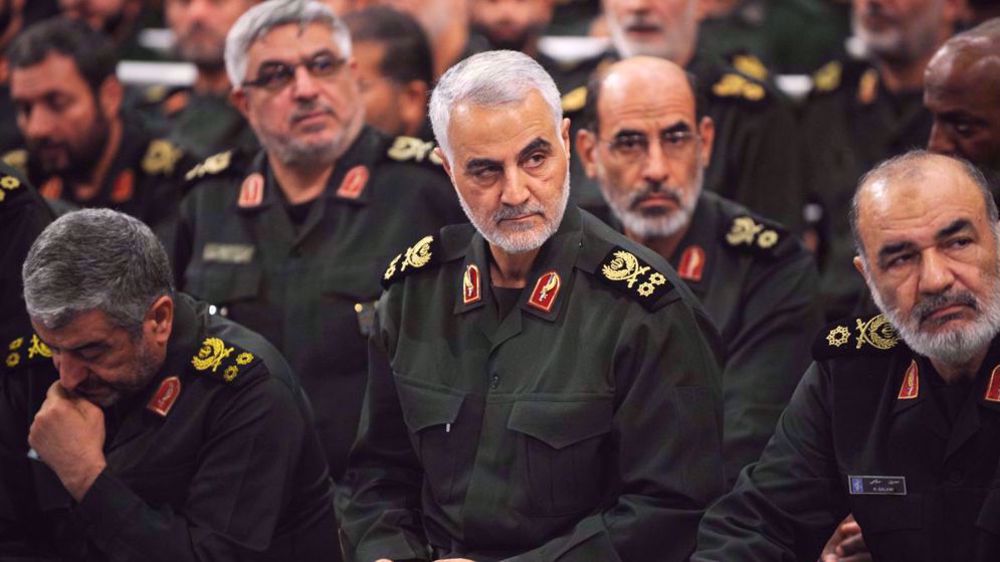
'General Soleimani unmasked US, Israel; expanded authority of regional resistance'
Day of Rage: Hamas calls on all Palestinians to attend pro-Gaza rallies
Certain groups manipulating Iran-US talks, goading US into ‘maximalist demands’: FM
US warplanes strike Yemeni capital in new acts of aggression
‘A war crime’: UN blasts US envoy to Tel Aviv for defending Israel’s blockade on aid into Gaza
VIDEO | Press TV's news headlines
VIDEO | Pope Francis dies at 88 after 12 years as Catholic leader
VIDEO | US bombs Yemen’s capital in escalating military campaign
Iran condemns baseless GCC claims on 3 Persian Gulf islands


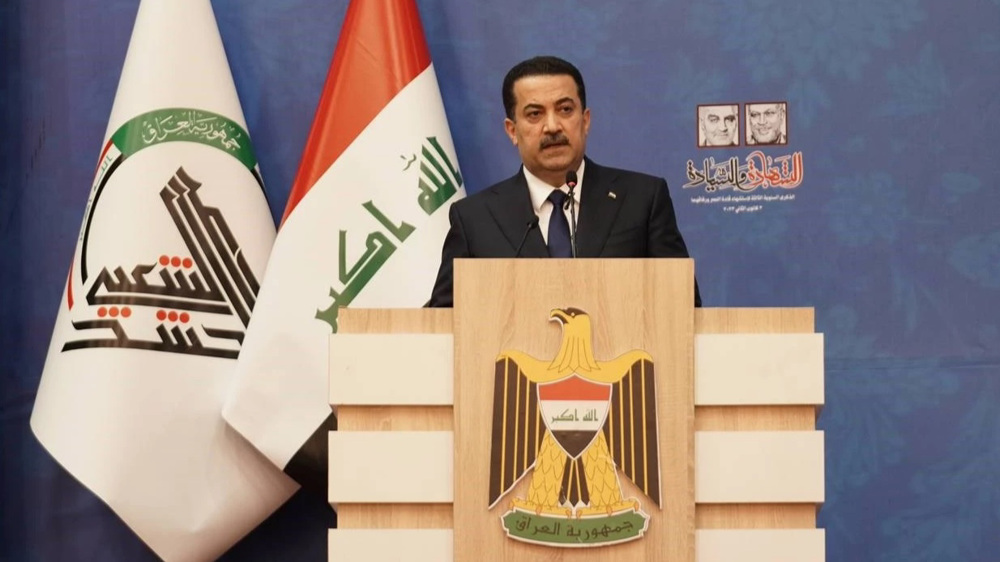
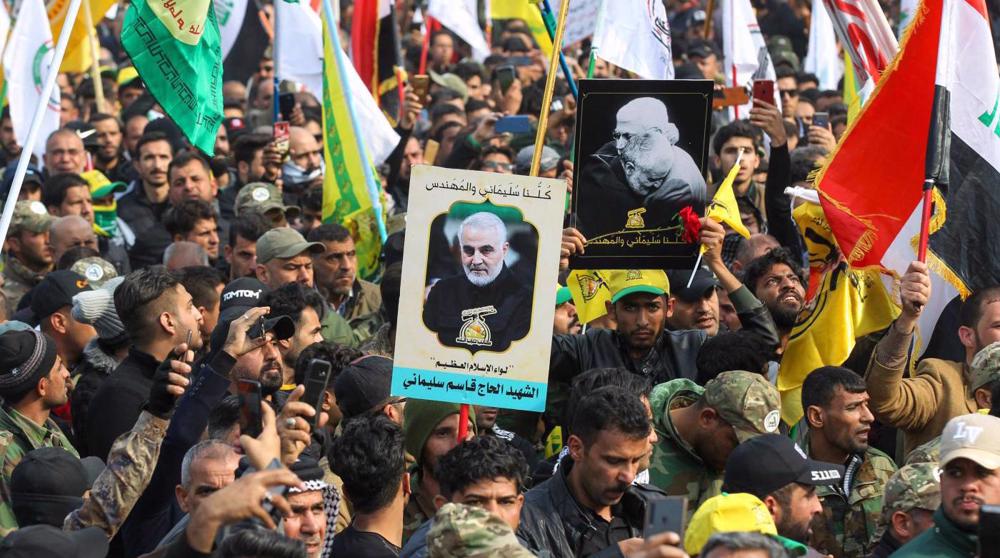
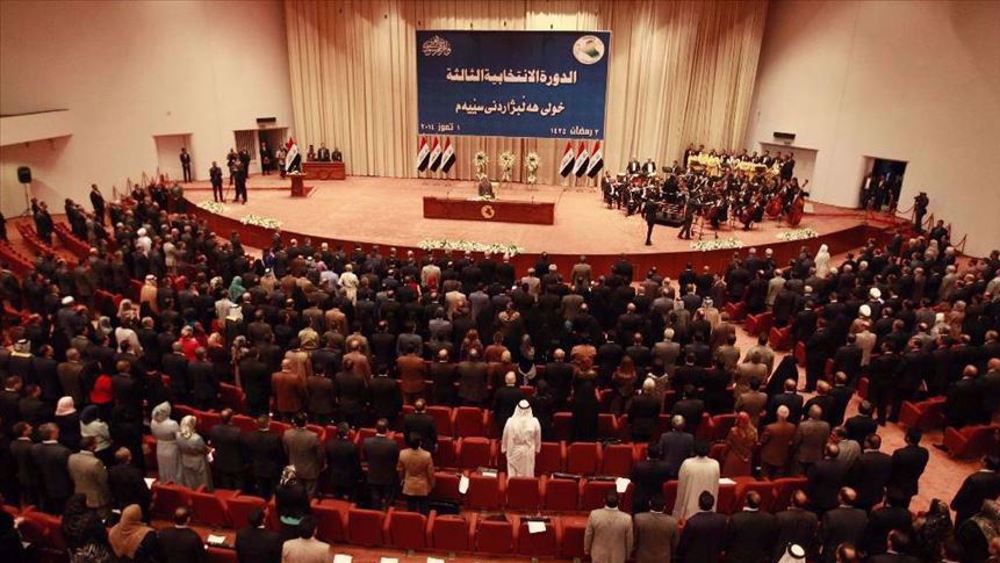
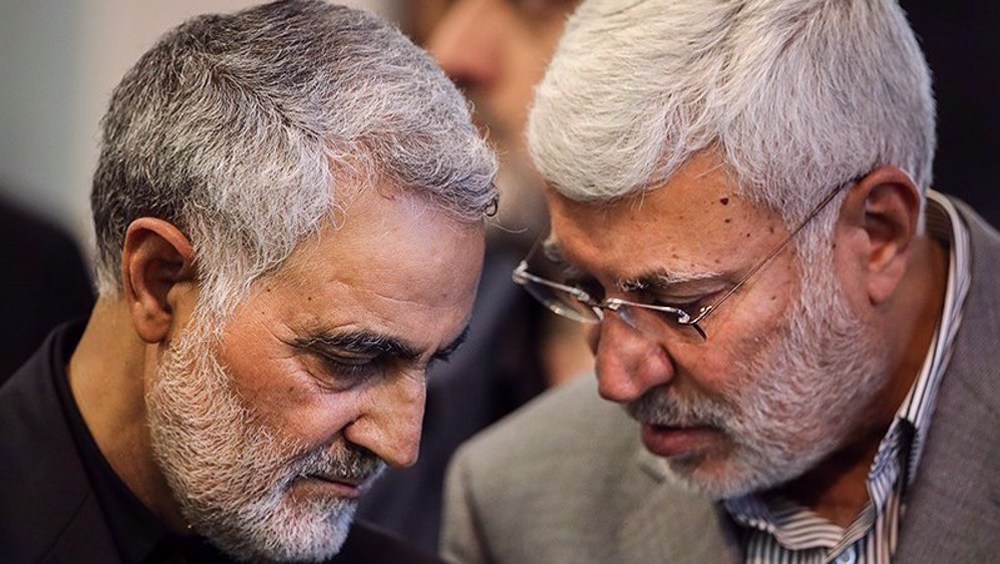



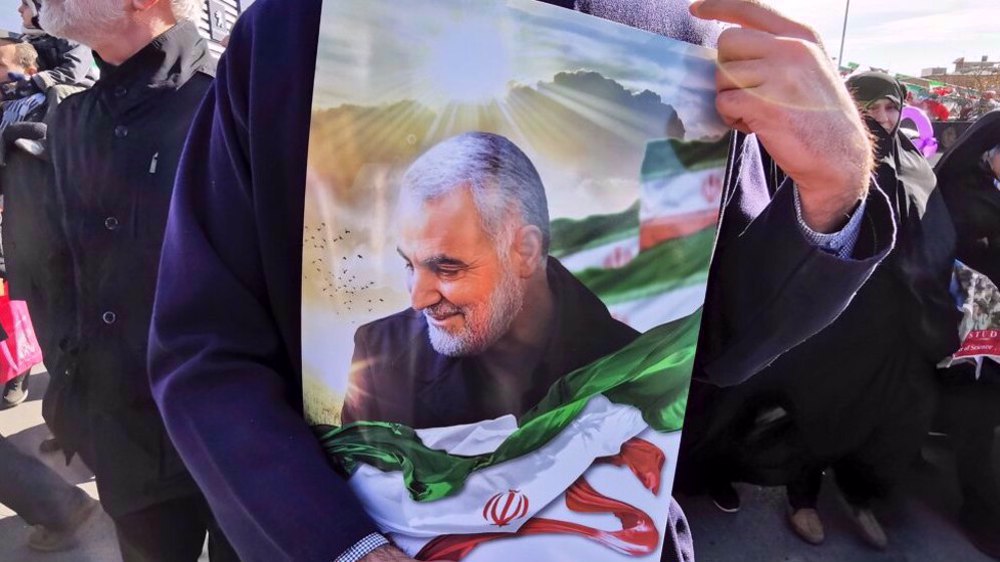
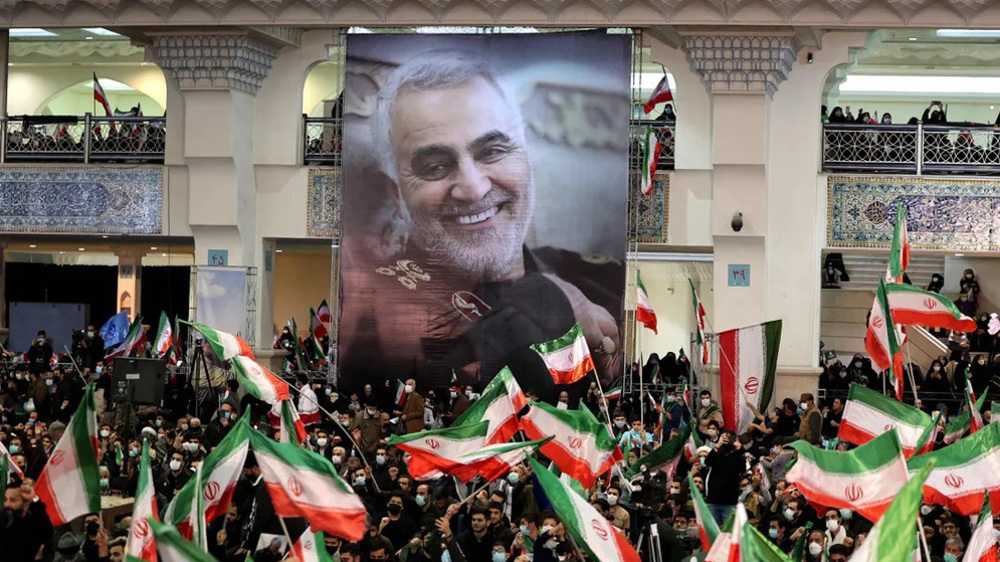
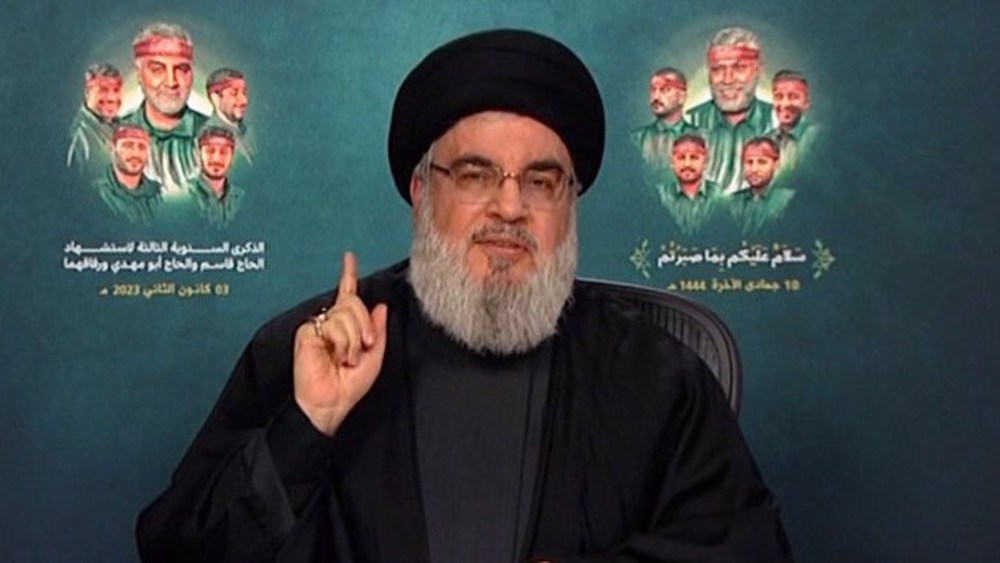
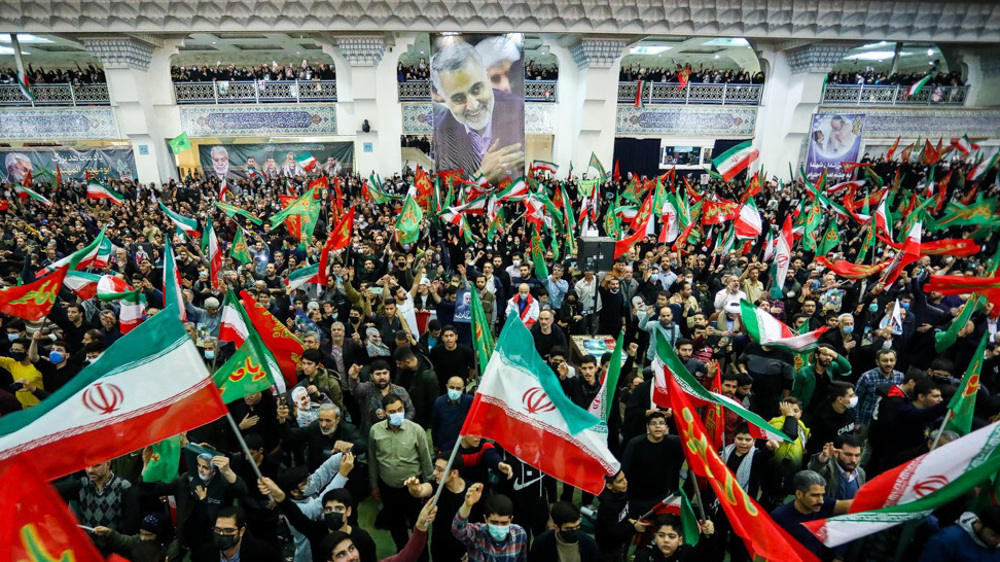
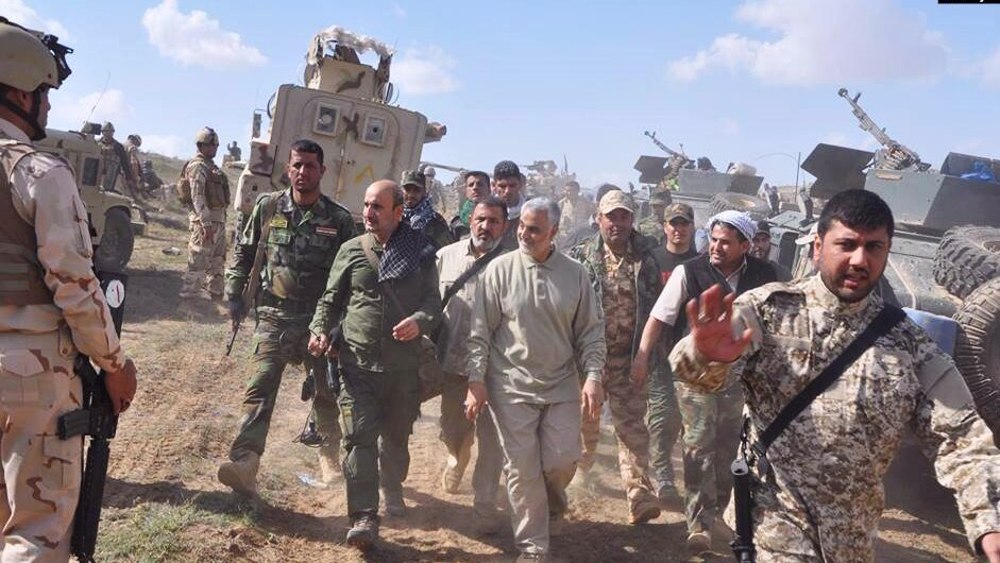
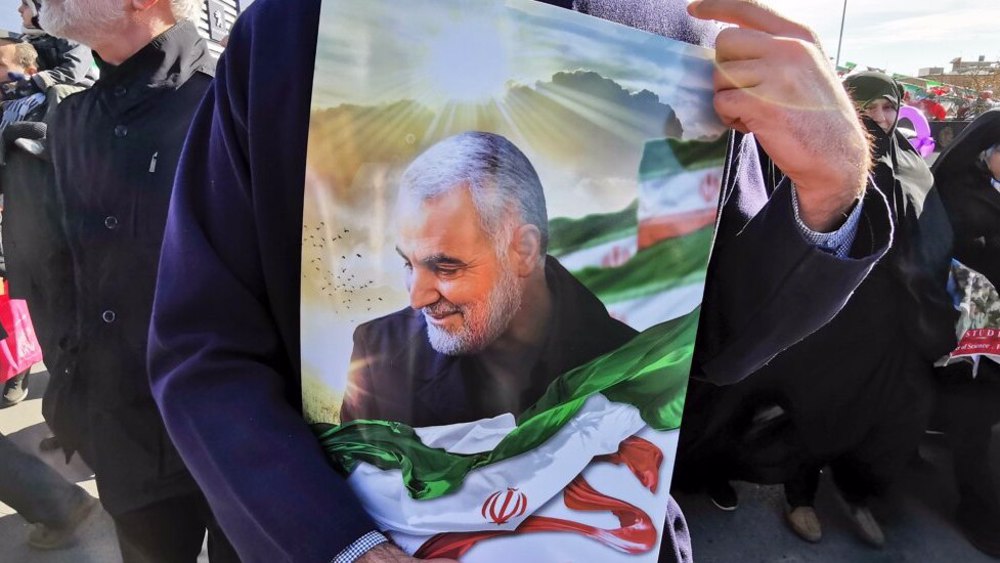
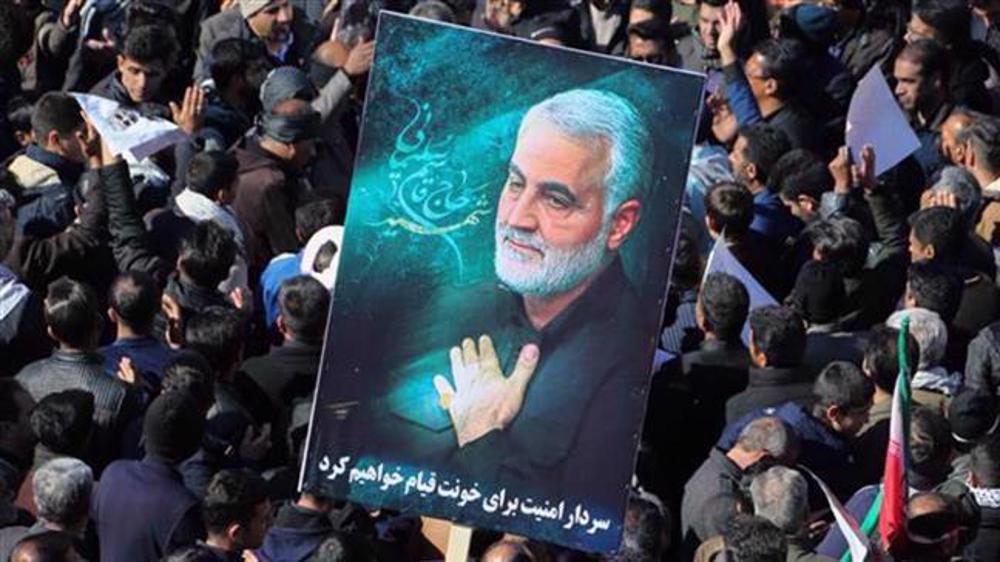
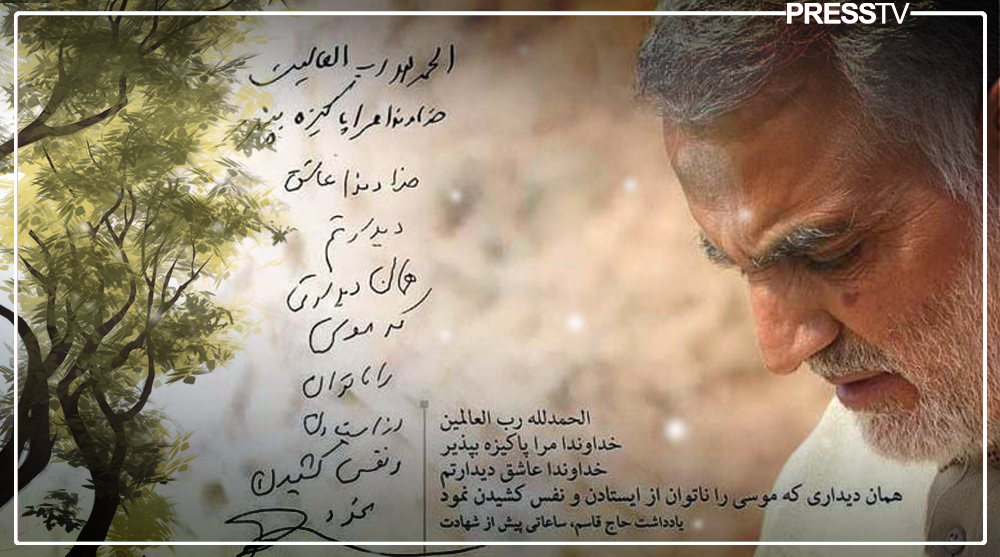
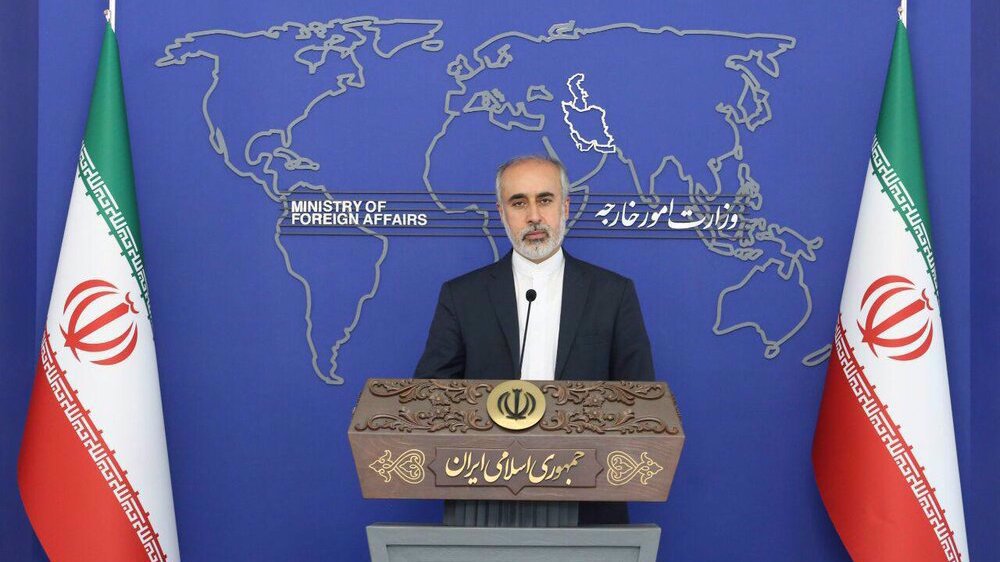

 This makes it easy to access the Press TV website
This makes it easy to access the Press TV website